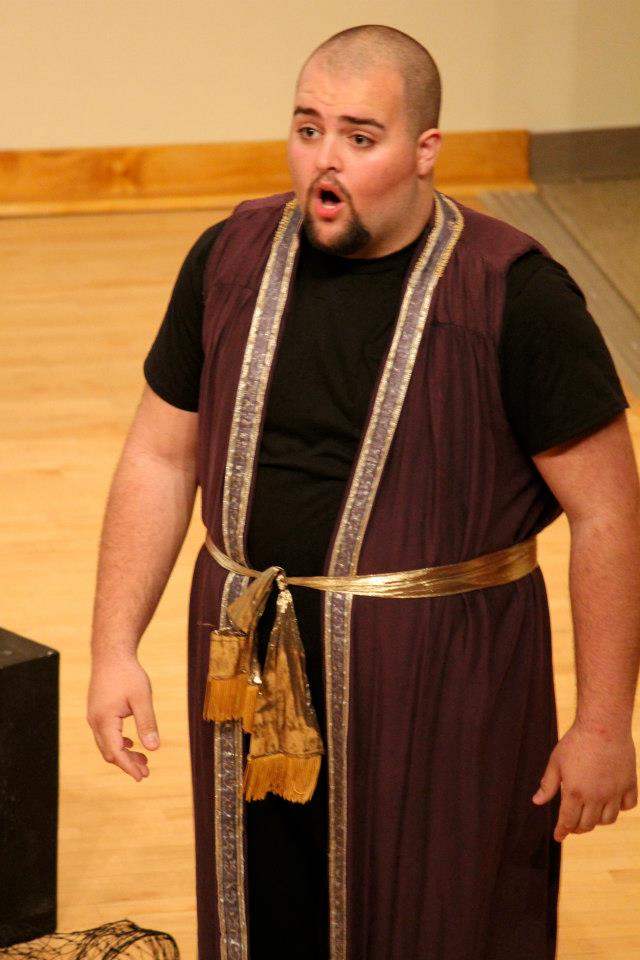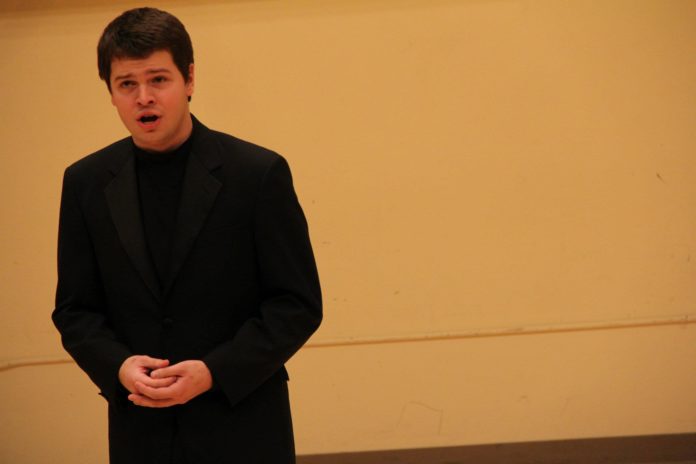 It’s not over until the SRU students sing. That is to say in the opera, of course. But for music students Eric Garber and Patrick McGill, this is just the beginning.
It’s not over until the SRU students sing. That is to say in the opera, of course. But for music students Eric Garber and Patrick McGill, this is just the beginning.
Senior music performance major, Eric Garber, 21, put his best instrument to use in audition for a role in Pittsburgh Opera’s production of Giuseppe Verdi and Antonio Ghislanzoni’s Aida.
The tale follows the lives of enslaved Ethiopian princess, Aida and the Egyptian general Radames during the time of their nations’ feud.
Given Verdi’s romantic composing background, Garber agreed that much of the arrangement encompassed very intense and emotional feelings.
“A lot of the music has an ‘I love you and if I can’t be with you I’m going to kill myself’ tone,” Garber said.
Garber auditioned for Aida last May and was surprised when he received the good news a week later. He was excited to be performing at the Benedum Center in Pittsburgh for his first opera debut.
“It was crazy,” Garber said. “I’ve been to the Benedum numerous times for shows. But it was so different being on stage. It was almost surreal.”
Garber said he was not nervous about the absence of dialogue in the opera or the composition written entirely in Italian. Being classically trained through SRU’s music department, Garber felt confident that he could portray his role while doing so in another language. He chose a German song by Franz Schubert for his audition piece noting that he felt strongest performing German.
Garber was cast as one of the chorus member priests in the production in collaboration with the American Guild of Musical Artists (AGMA) and Chorus Master Mark Trawka. Garber signed a contract for the show and also received hourly wages for his performance work.
Senior music education major, Patrick McGill, 21, cast alongside Garber in Aida said he felt that he was finally joining the big leagues with the Pittsburgh production.
“Getting our music in the mail was the most exciting part,” McGill said.
McGill also commented on the networking opportunities he had created with cast and crew members in addition to the formation of “tremendous new friendships.”
McGill wished he could have met the four celebrity cameo performers, Charlie Batch, Bob Friend, Franco Harris, and Phil Bourque during the show’s performances.
“Getting to see them walk on stage made the opportunity just a little more special though,” McGill said.
Garber and McGill were urged to know their music before they began rehearsal with the cast, they said.
“People actually told us they were impressed that we knew all of our music beforehand,” McGill said. “Everyone was kind and welcoming towards us. If you pulled your weight, it all went well.”
Both identifying as bass voice parts, they were asked to jump to baritone singing parts as well, something that became difficult at times, they both admitted.
“It wasn’t like church choir when you’re singing the same part,” McGill said. “The text was repetitive but the music certainly varied.”
Garber agreed saying, “There was lots of music to learn, but it came with more repetition and practice.”
Garber said his proudest moment was hearing the faint sound of applause from far behind stage.
“It was adrenaline rushing,” he said. “You couldn’t hear it at its loudest volume, but you knew everyone went wild.”
McGill nodded in agreement, “It really makes you feel special.”








